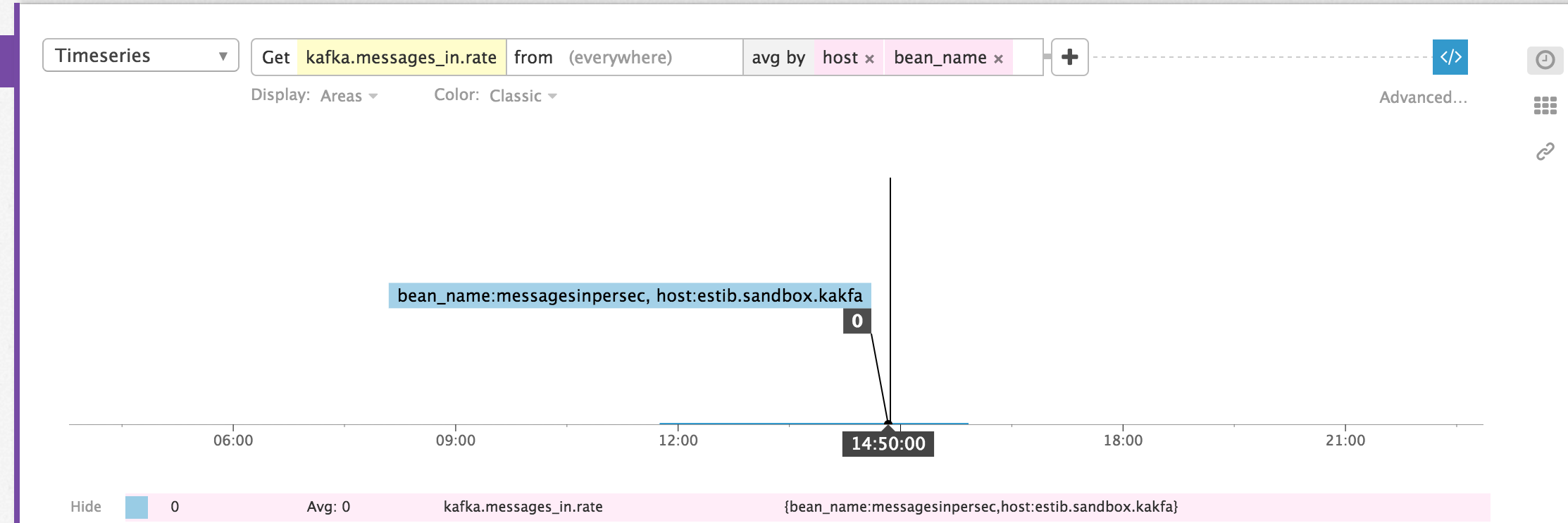- 重要な情報
- はじめに
- 用語集
- Standard Attributes
- ガイド
- インテグレーション
- エージェント
- OpenTelemetry
- 開発者
- Administrator's Guide
- API
- Partners
- DDSQL Reference
- モバイルアプリケーション
- CoScreen
- CoTerm
- Remote Configuration
- Cloudcraft
- アプリ内
- ダッシュボード
- ノートブック
- DDSQL Editor
- Reference Tables
- Sheets
- Watchdog
- アラート設定
- メトリクス
- Bits AI
- Internal Developer Portal
- Error Tracking
- Change Tracking
- Service Management
- Actions & Remediations
- インフラストラクチャー
- Cloudcraft
- Resource Catalog
- ユニバーサル サービス モニタリング
- Hosts
- コンテナ
- Processes
- サーバーレス
- ネットワークモニタリング
- Cloud Cost
- アプリケーションパフォーマンス
- APM
- Continuous Profiler
- データベース モニタリング
- Data Streams Monitoring
- Data Jobs Monitoring
- Data Observability
- Digital Experience
- RUM & セッションリプレイ
- Synthetic モニタリング
- Continuous Testing
- Product Analytics
- Software Delivery
- CI Visibility (CI/CDの可視化)
- CD Visibility
- Deployment Gates
- Test Visibility
- Code Coverage
- Quality Gates
- DORA Metrics
- Feature Flags
- セキュリティ
- セキュリティの概要
- Cloud SIEM
- Code Security
- クラウド セキュリティ マネジメント
- Application Security Management
- Workload Protection
- Sensitive Data Scanner
- AI Observability
- ログ管理
- Observability Pipelines(観測データの制御)
- ログ管理
- CloudPrem
- 管理
Both my JMX and AWS integrations use "name" tags. What do I do?
このページは日本語には対応しておりません。随時翻訳に取り組んでいます。
翻訳に関してご質問やご意見ございましたら、お気軽にご連絡ください。
翻訳に関してご質問やご意見ございましたら、お気軽にご連絡ください。
The “name” tag is one of many host-level tags that are applied by default from the AWS integration. But it is also a tag that’s often applied by default at the metric-level by our JMX-based integrations (based on the “bean names” matched in JMX). Both tags are useful, but using both at the same time can cause tag-conflicts that result in inappropriately aggregated values. So what to do about this?
The best approach is to rename your JMX integration’s “name” tag to be something else (e.g, “bean_name”). With our JMX-based integrations, there are two configuration features that make this possible: 1, the ability to exclude default tags via configuration, and 2, the ability to add specified bean attributes as customized metric tags.
For example, the following configuration of your kafka.yaml would collect a metric called “kafka.messages_in.rate” that would be tagged, among other things, by “name:messagesinpersec”.
- include:
domain: 'kafka.server'
bean: 'kafka.server:type=BrokerTopicMetrics,name=MessagesInPerSec'
attribute:
Count:
metric_type: rate
alias: kafka.messages_in.rate
To stop this from conflicting with an AWS “name” tag, you could change that metric’s configuration to the following:
- include:
domain: 'kafka.server'
bean: 'kafka.server:type=BrokerTopicMetrics,name=MessagesInPerSec'
attribute:
Count:
metric_type: rate
alias: kafka.messages_in.rate
exclude_tags:
- name
tags:
bean_name: $name
In this case, the same metric would be collected, but with the “name” tag applied as “bean_name:messagesinpersec” instead, which would no longer conflict with the AWS “name” tag key.

